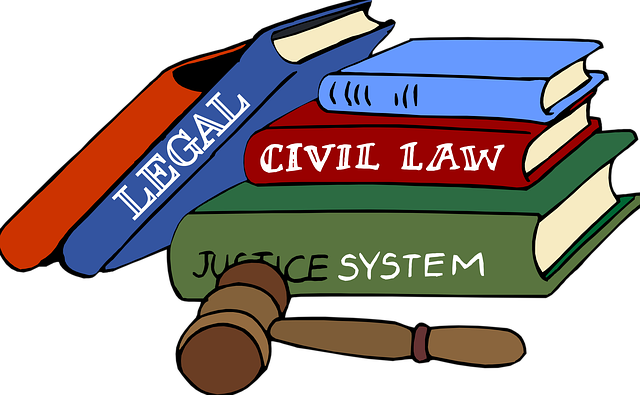Environmental Crime Trials, governed by diverse and state-specific Criminal Procedure Laws, require legal professionals to navigate complex territories. These trials address ecological harm, from pollution to habitat destruction, demanding a deep understanding of environmental regulations and state laws. The variations in these laws create disparities in prosecution, investigation, and penalties across US states. Overcoming challenges like lengthy processes and specialized knowledge is crucial for achieving environmental justice and deterring future offenses. Harmonizing state laws and leveraging technology are proposed strategies to streamline investigations and improve outcome consistency.
Environmental Crime Trials: Uncovering Justice in a Complex World. This article provides an in-depth look at the unique challenges and significance of environmental cases, focusing on the intricate dance between criminal procedure laws and state variations. From understanding the complexities of these trials to exploring their impact on environmental justice, we delve into the factors shaping legal outcomes. By examining state-specific approaches, this comprehensive overview highlights both current challenges and promising prospects for future environmental crime prosecutions.
- Understanding Environmental Crime Trials: A Comprehensive Overview
- The Role of Criminal Procedure Laws in Environmental Cases
- State Variations and Their Impact on Environmental Justice
- Challenges and Future Prospects for Environmental Crime Prosecutions
Understanding Environmental Crime Trials: A Comprehensive Overview
Environmental Crime Trials, a burgeoning field within environmental law, delve into the complex realm of prosecuting entities responsible for ecological damage. These trials are governed by a intricate web of Criminal Procedure Laws that vary significantly across states in the US. Understanding these variations is crucial for both prosecutors and general criminal defense attorneys navigating this landscape. The process encompasses all stages of the investigative and enforcement process, from initial environmental assessments to trial, ensuring accountability for crimes like pollution, habitat destruction, and illegal waste disposal.
Achieving extraordinary results in these trials demands a deep understanding not just of environmental regulations but also of the specific Criminal Procedure Laws by State Variations. Lawyers must master local legal frameworks, interpret scientific data, and effectively communicate the severity of ecological crimes to juries. This multifaceted approach is essential for securing justice and deterring future environmental transgressions, highlighting the vital role of legal expertise in safeguarding our planet.
The Role of Criminal Procedure Laws in Environmental Cases
The application of Criminal Procedure Laws plays a pivotal role in Environmental Crime Trials, where complex cases often involve multinational corporations and intricate financial transactions. These laws vary significantly from state to state, creating a challenging landscape for legal professionals handling environmental cases. Understanding the nuances of criminal procedure across jurisdictions is crucial for building robust defenses, ensuring due process, and upholding justice.
While general criminal defense strategies may offer some common threads, the specific procedural rules and regulations in each state demand tailored approaches. Environmental cases, often involving white-collar and economic crimes, further complicate matters. Navigating these complexities requires a deep understanding of not just the law but also the interplay between corporate interests, philanthropic and political communities, and the public interest.
State Variations and Their Impact on Environmental Justice
Environmental crime trials vary significantly across the country due to differing Criminal Procedure Laws by state variations. These disparities can have a profound impact on environmental justice, as some states may offer more robust protections for victims and stricter penalties for offenders than others. As a result, achieving extraordinary results in these trials, including winning challenging defense verdicts, can depend heavily on the jurisdiction. Across the country, these discrepancies create an uneven playing field, where those accused of environmental crimes may face very different outcomes based solely on where their case is heard.
Moreover, state variations impact not only the prosecution’s approach but also the resources available to defendants. Some states have more specialized environmental law sections within their attorney general’s offices, while others rely heavily on local prosecutors with less expertise in these complex cases. This can translate into differences in investigative techniques, evidence handling, and legal arguments presented at trial. Understanding these variations is crucial for both prosecutors and defense attorneys aiming to achieve justice, as it allows them to tailor their strategies to the specific laws and precedents of each state, ultimately shaping the outcome of environmental crime trials.
Challenges and Future Prospects for Environmental Crime Prosecutions
Environmental crime trials face significant challenges due to complex legal frameworks and state-by-state variations in criminal procedure laws. These differences can create inconsistencies in how environmental offenses are prosecuted, investigated, and punished. The intricate nature of environmental crimes, often involving scientific data and technical expertise, demands specialized knowledge from both prosecutors and defense attorneys. Moreover, the lengthy process and high costs associated with these trials can deter individuals from coming forward, hindering successful prosecutions.
Looking ahead, future prospects for environmental crime prosecutions rely on enhanced cooperation between states to harmonize criminal procedure laws. Standardizing certain aspects of the legal process could streamline investigations and improve the consistency of outcomes. Additionally, leveraging technology for data analysis and evidence presentation can expedite trials and make them more accessible. Addressing these challenges will not only strengthen environmental justice but also serve as a powerful deterrent against future offenses, ensuring that those responsible are held accountable under consistent and effective legal frameworks.
Environmental crime trials play a pivotal role in holding perpetrators accountable and fostering environmental justice. By examining the interplay between Criminal Procedure Laws and state variations, we can identify gaps and enhance prosecution strategies. Understanding these complexities is crucial for ensuring effective enforcement of environmental regulations and a sustainable future. The challenges faced today highlight the need for innovative legal approaches, making way for more successful outcomes in environmental crime cases.






